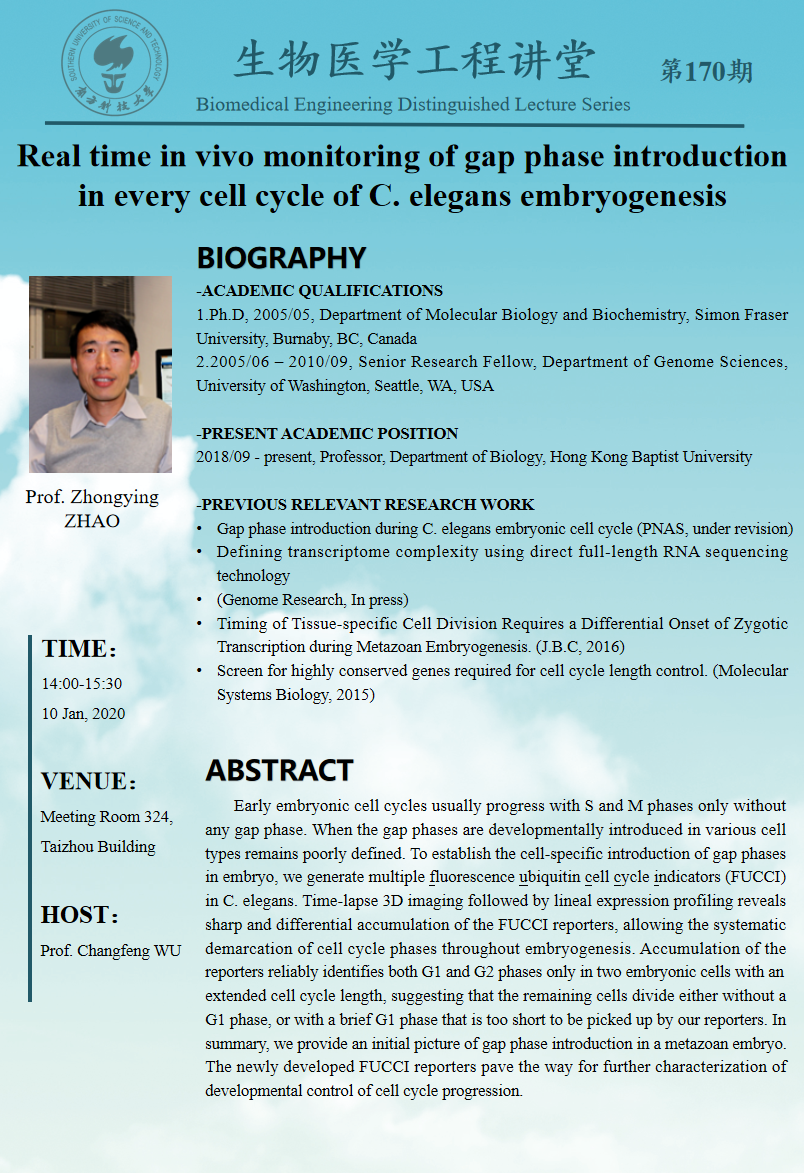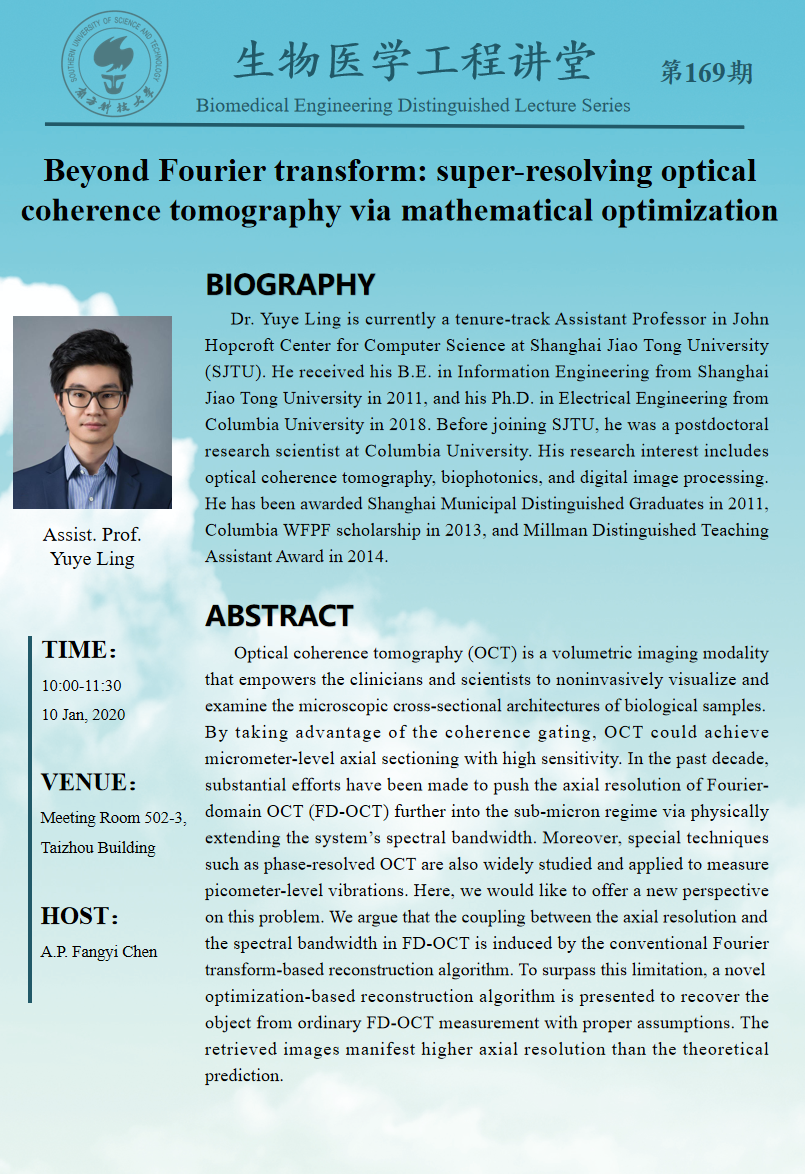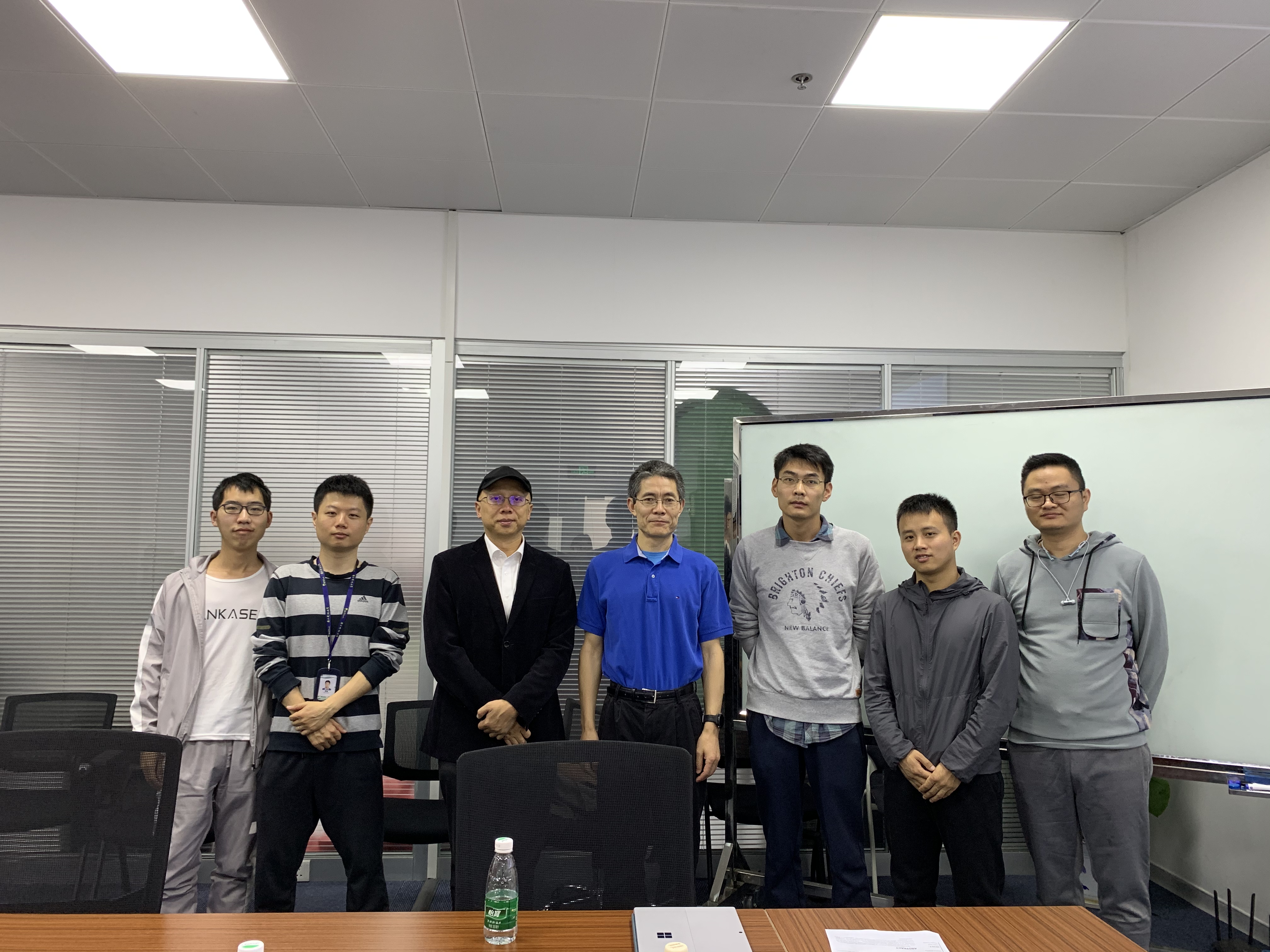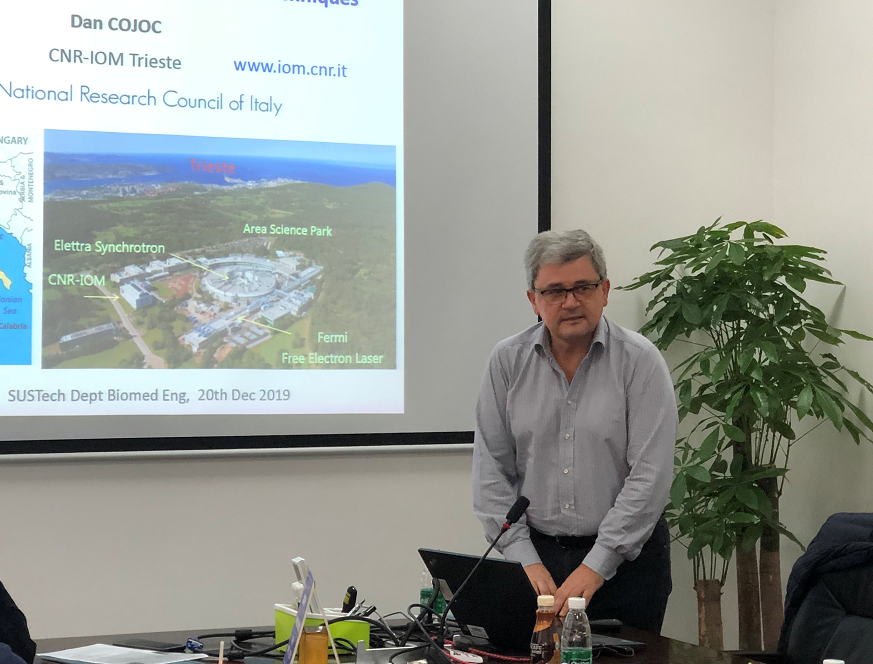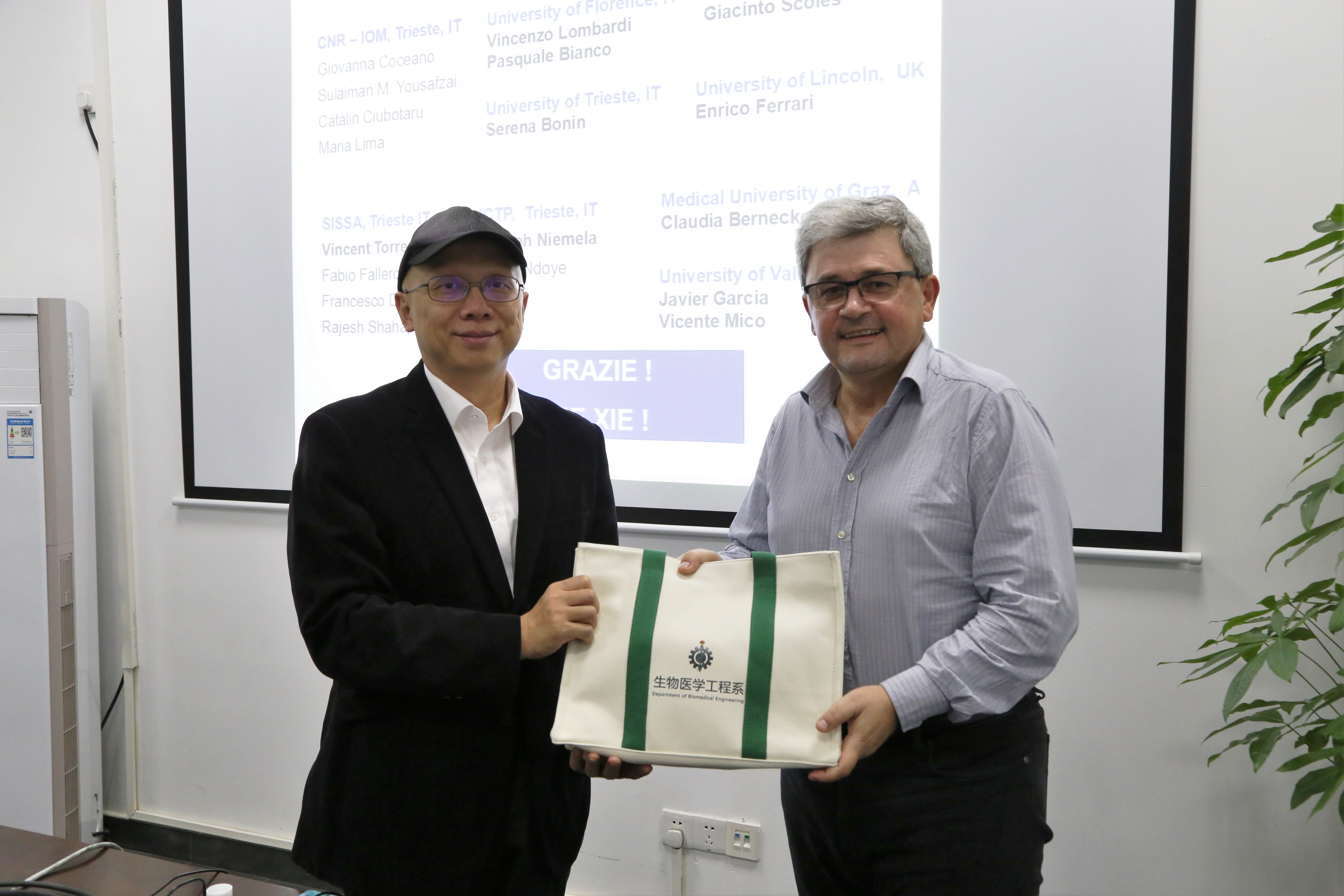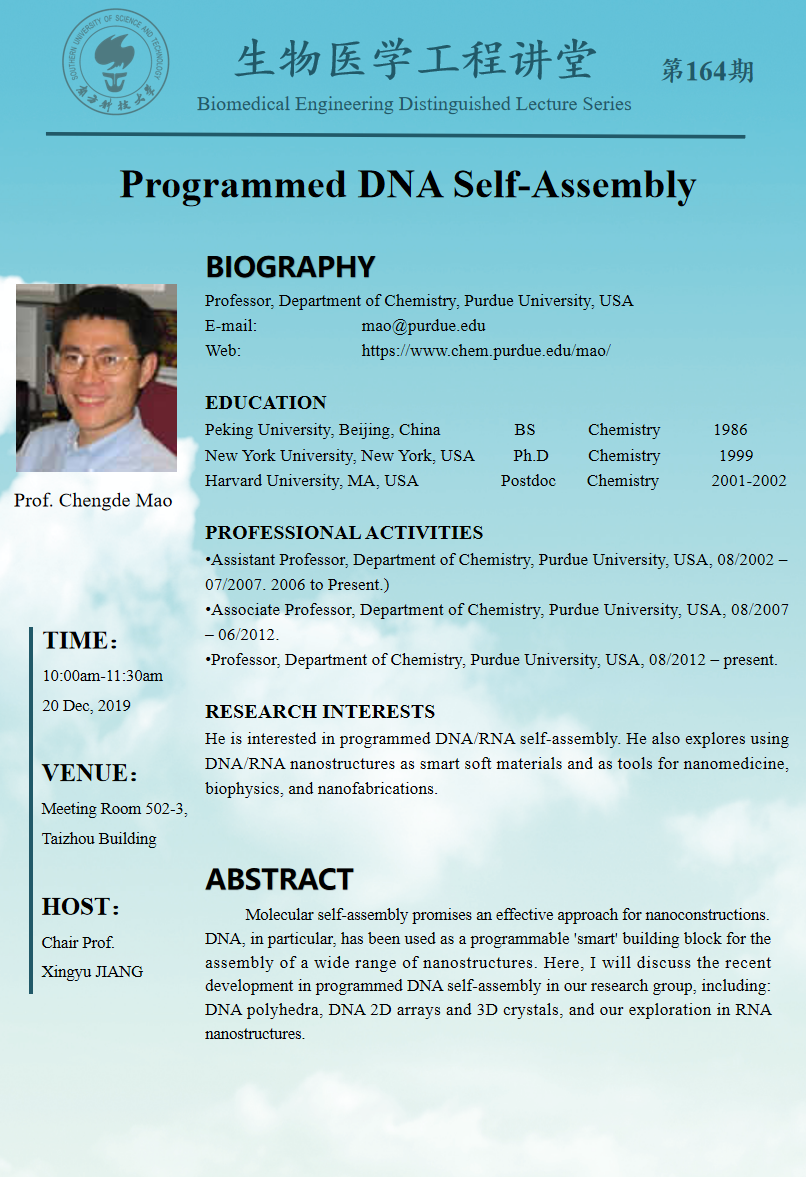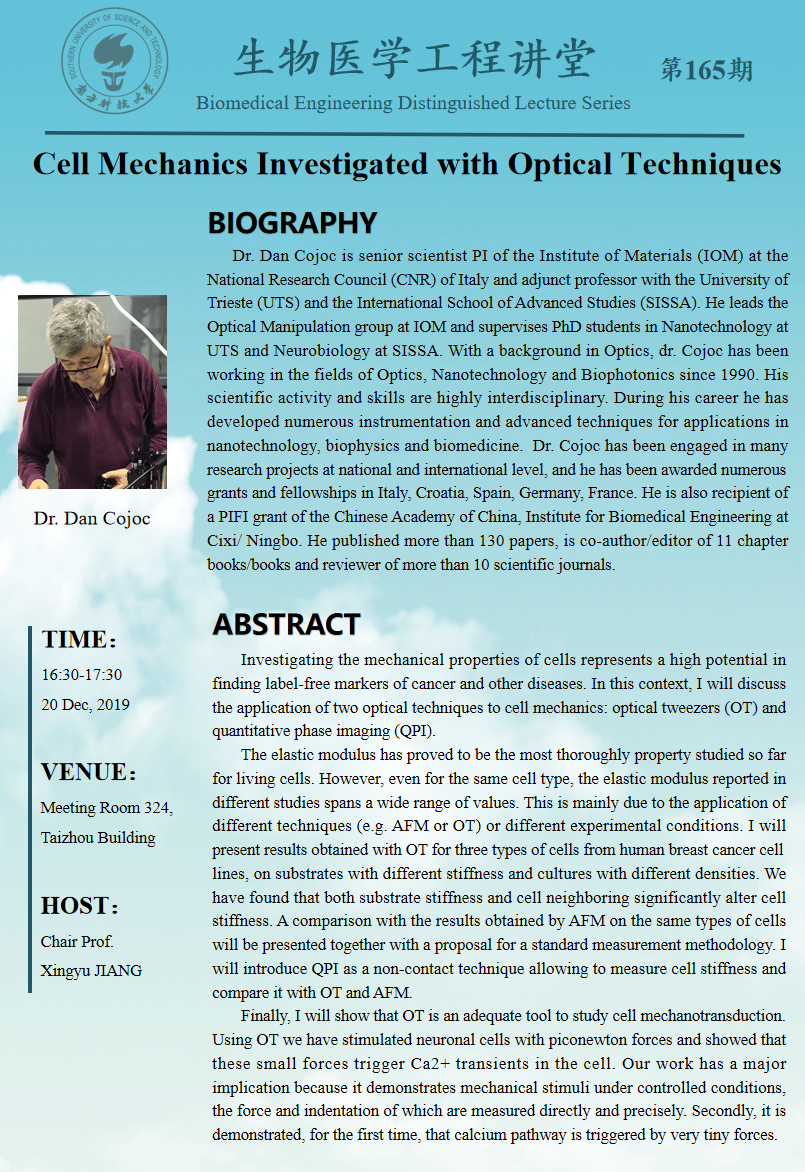Author: admin
Real time in vivo monitoring of gap phase introduction in every cell cycle of C. elegans embryogenesis
Beyond Fourier transform: super-resolving optical coherence tomography via mathematical optimization
Prof. Chengde Mao Speaks at BME
Last week, Department of Biomedical Engineering (BME) welcomed Purdue University Chengde Mao to campus. He had been invited to give the 164th lecture in the Biomedical Engineering Distinguished Lecture Series, in which he gave a fascinating lecture entitled, “Programmed DNA Self-Assembly.” Professor Jiang Xingyu, Head of the Department of Biomedical Engineering hosted the lecture.
Prof. Chengde Mao(Fourth from the left)
In this lecture, Prof. Mao introduced molecular self-assembly promises an effective approach for nanoconstructions. DNA, in particular, has been used as a programmable ‘smart’ building block for the assembly of a wide range of nanostructures. Prof. Mao discussed the recent development in programmed DNA self-assembly in his research group, including: DNA polyhedra, DNA 2D arrays and 3D crystals, and his exploration in RNA nanostructures.
Dr. Dan Cojoc Speaks at BME
Last week, Department of Biomedical Engineering (BME) welcomed senior scientist PI of National Research Council (CNR) of Italy Dan Cojoc to campus. He had been invited to give the 165th lecture in the Biomedical Engineering Distinguished Lecture Series, in which he gave a fascinating lecture entitled, “Cell Mechanics Investigated with Optical Techniques.” Professor Jiang Xingyu, Head of the Department of Biomedical Engineering hosted the lecture.
Dr. Dan Cojoc
In his lecture, Dr. Dan Cojoc talked about investigating the mechanical properties of cells represents a high potential in finding label-free markers of cancer and other diseases. He discussed the application of two optical techniques to cell mechanics: optical tweezers (OT) and quantitative phase imaging (QPI). Moreover, he introduced QPI as a non-contact technique allowing to measure cell stiffness and compare it with OT and AFM. Finally, he showed that OT is an adequate tool to study cell mechanotransduction.
Chair Prof. Xingyu Jiang and Dr. Dan Cojoc
Programmed DNA Self-Assembly
Cell Mechanics Investigated with Optical Techniques
CAE Academician lectures on biomedical technology and innovation




